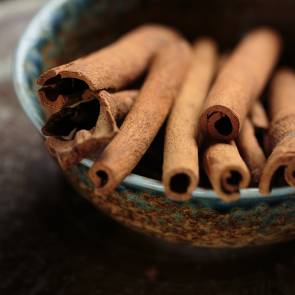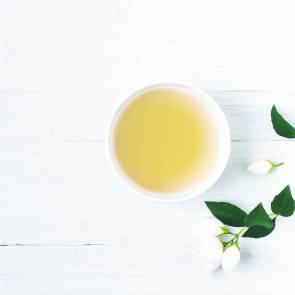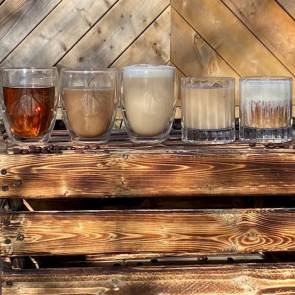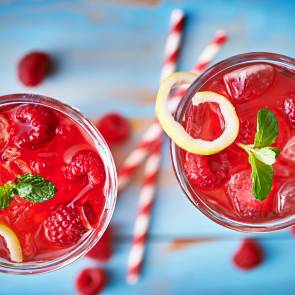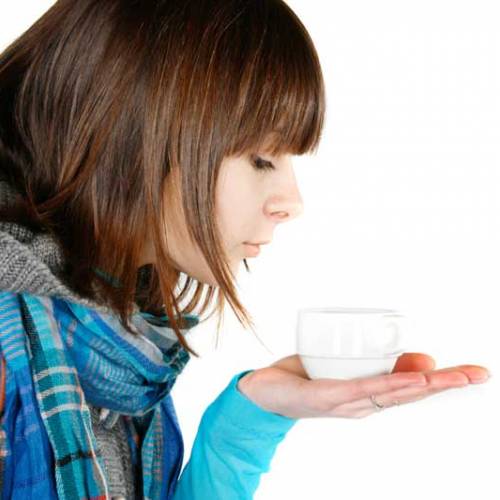
With the revival of the ritual of tea comes rumors and myths about this incredible beverage. Some of these are based in fact, while others are much less reputable and in some cases completely false. We’ll examine a few of these myths and enlighten you about which ones are true and which ones are false. Feel free to contribute some myths of your own in the comments below, and we’ll let you know, in our experience, what’s true and what’s not.
Myth #1: The fluoride in tea is bad for your health.
FALSE: The naturally occurring fluoride in tea is actually less than what you would be consuming in fluoride from your local water supply, so when questioning the health effects of fluoride, the first place to look would be our water supply. Fluoride is known to increase our resistance to dental cavities, and is added to the water supply for this reason, however some health effects have been associated excessive fluoride consumption form the water supply and multiple sources including toothpaste, etc. The fluoride present in tea is drawn up into the plant form the soil, and although some regions may have more fluoride in the soil than others, in general the amount of fluoride in tea is minimal, and not harmful to us. Overall tea is a health-promoting beverage. When contemplating the ill effects of excessive fluoride intake, tea would not be a significant factor.
Myth #2: Tea counts towards our daily recommended water intake per day.
SOMEWHAT FALSE: Tea is over 99% water, and although it does contribute to the recommended 8 cups of water we are each supposed to drink every day, one cup of tea does not equal one cup of water. The diuretic effect of caffeine in tea causes you to lose some of that liquid faster than if you were consuming plain water. Tea which is drunk throughout the day will have a diuretic effect, however you do not lose all of the water you have consumed from tea. Most herbals teas do not have a significant diuretic effect which mean that they contribute more to your daily water requirements, while black teas produce a stronger diuretic effect. In the end, tea can indeed count towards your fluid intake for the day, however you should not count entirely on tea. Eight cups of tea does not equal eight cups of water, even though 99% of tea is water.
Myth #3: Pregnant women should not drink tea.
SOMEWHAT TRUE: As caffeine consumption is something to be very careful about when pregnant, the consumption of tea (Camelia Sinensis) should be kept at a minimum. Of course there is not so much caffeine in tea as in coffee, it is still there and can still have effects. However, many people also refer to herbal teas as ‘tea’, and group them all under the same umbrella. In fact, there are some herbal teas which are very nutritious for pregnant women. Raspberry Leaf Tea, for example, has been used by midwives during the last trimester of pregnancy to help prepare women for childbirth. On the other hand, while Ginger tea is great for pregnancy-related nausea, it should not be consumed in quantities over 2 grams per day, which is about 1.5 cups of ginger tea. If you enjoy drinking herbal infusions, check with your health care provider to determine which herbal teas are safe for you. There is no reason you should give up drinking all types of teas when you are pregnant – only those which have properties that make them unsafe for pregnancy.
Myth #4: Tea drains iron from the body.
FALSE: Tea does not actually drain iron from the body, however in some cases and for certain individuals, drinking tea right before or right after a meal can prevent the body from absorbing iron form that meal. So if you have problems with iron absorption, or have been diagnosed repeatedly with low iron levels, you should always make sure that you separate your tea time from your meals by at least 1 hour. While tea does not drain iron from the body, tea contains tannins which interfere with the absorption of iron. This also means that you should not be drinking tea soon after or before taking any iron supplements. In healthy individuals, however, there is no additional risk of developing iron deficiency from tea drinking. Drinking tea will not contribute to causing iron deficiency. Do you have any other myths you have come across about tea, or have any questions about tea? Write a comment below and we might have an answer for you. You can also post questions on our facebook page.



